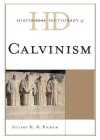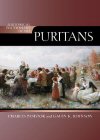Historical Dictionaries of Reformed Tradition (2 vols.)
Digital Logos Edition
Overview
Gaining a solid understanding of the historical perspective and theological nuances found in various Christian traditions can be a daunting task. With this collection, that job becomes significantly easier for studying the Reformed tradition.
Tackling both Calvinism and Puritanism, these books provide ample background on these influential traditions via chronologies, essays, and copious dictionary entries on key people, places, ideas, and more. Both volumes also include extensive bibliographies to serve as a helpful springboard for further study. Whether you are a student, scholar, or interested layperson, this set will help you better understand the origins and contribution of Calvin and the Puritans to the landscape of religious and social thought from the Reformation through to the present day.
In the Logos editions, these volumes are enhanced by amazing functionality. Important terms link to dictionaries, encyclopedias, and a wealth of other resources in your digital library. Perform powerful searches to find exactly what you’re looking for. Take the discussion with you using tablet and mobile apps. With Logos Bible Software, the most efficient and comprehensive research tools are in one place, so you get the most out of your study.
Key Features
- Provides timeline and introductory essays on Calvinism and Puritanism
- Contains and defines hundreds of key terms from the Reformed perspective
- Features lengthy bibliographies for further study
Product Details
- Title: Historical Dictionaries of Reformed Tradition (2 vols.)
- Authors: Stuart D.B. Picken, Charles Pastoor and Galen K. Johnson
- Publisher: Rowman & Littlefield
- Volumes: 2
- Pages: 722
- Christian Group: Reformed
- Resource Type: Dictionaries
Individual Titles
- Historical Dictionary of Calvinism by Stuart D.B. Picken
- Historical Dictionary of the Puritans by Charles Pastoor and Galen K. Johnson

Calvinism is named after 16th century Reformer, John Calvin whose overall theology is contained in his Institutes of the Christian Religion (1559). Calvin’s theology and ecclesiology provided the foundation upon which the Reformed churches of Europe were built. It was a comprehensive and carefully expounded alternative to the doctrines of the Roman Catholic church and was designed to expose their weaknesses and present a view of the Christian faith that was a reformed version of the old faith.
The Historical Dictionary of Calvinism relates the history of its founder John Calvin, the Reformed church, and the impact that Calvinism has had in the modern world along with an account of modern and contemporary developments within the religious, political, and social culture it has created. This is done through a chronology, an introductory essay, an extensive bibliography, and over 300 cross-referenced dictionary entries on concepts, significant figures, places, activities, and periods. This book is an excellent access point for students, researchers, and anyone wanting to know more about Calvinism.
Stuart D.B. Picken taught at the International Christian University in Tokyo, served as director of the Centre for Japanese Studies at the University of Stirling, and then concluded his career as Graduate School Dean at the Nagoya University of Commerce and Business Administration. He is currently Chair of the Japan Society of Scotland. He is a recipient of the Order of the Sacred Treasure by the Japanese government for pioneering research on Japan and for services to Japan–Scotland and Japan–U.K. relations for over three decades.

Members of the Church of England until the mid–16th century, the Puritans thought the church had become too political and needed to be ‘purified.’ While many Puritans believed the church was capable of reform, a large number decided that separating from the church was their only remaining course of action. Thus the mass migration of Puritans (known as Pilgrims), to America took place. Although Puritanism died in England around 1689 and in America in 1758, Puritan beliefs, such as self-reliance, frugality, industry, and energy remain standards of the American ideal. The Historical Dictionary of Puritans tells the story of Puritanism from its origins until its eventual demise. This is done through a chronology, an introduction, a bibliography, and several hundred cross-referenced dictionary entries on important people, places, and events.
Charles Pastoor is Professor of English at John Brown University in Arkansas.
Galen K. Johnson is Professor of Theology at John Brown University in Arkansas.